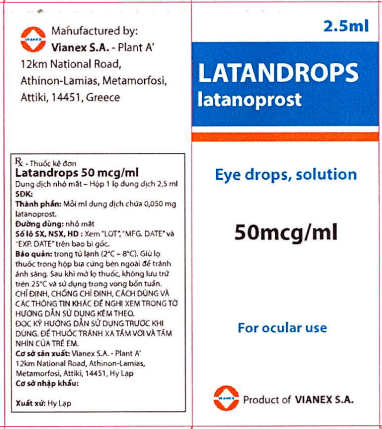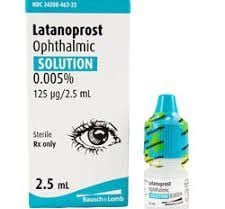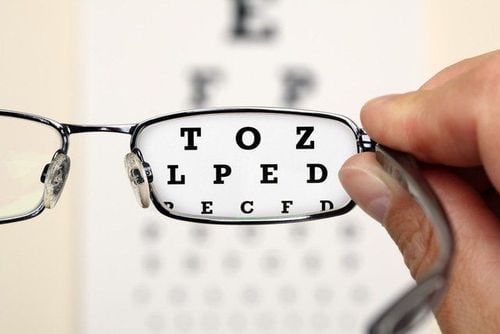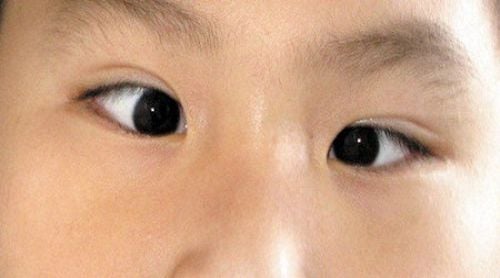This is an automatically translated article.
The article is professionally consulted by Specialist Doctor II Nguyen Thai Hung - Department of Medical Examination & Internal Medicine - Vinmec Danang International General Hospital.
1. What is a crossed eye?
Strabismus is a deviation of the vision axis of the eye often accompanied by visual disturbances. Strabismus is a common disease, especially in children. Strabismus is divided into two main types:Functional strabismus (also known as concomitant strabismus), in which the strabismus always moves in the same direction as the healthy eye, the strabismus angle does not change in all directions. Visual acuity deviation will cause visual disturbances in both eyes. Companion strabismus is common in children. Strabismus (also known as incomitant strabismus), in which paralysis of the oculomotor muscle causes restriction of eye movement, unequal strabismus angle in all directions of vision. Paralysis is common in adults.
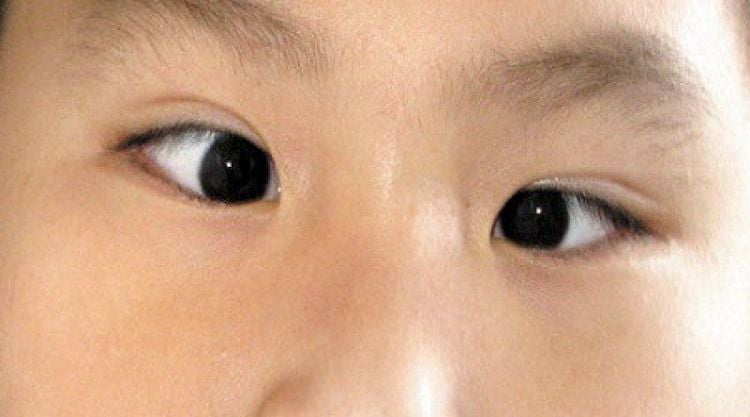
Eyes with refractive errors such as nearsightedness, severe farsightedness Physical defects: cataracts, retinal cancer, toxoplasmosis,... Eye paralysis due to ophthalmoplegia Congenital or acquired extraocular muscle palsy Heredity: more than 50% of cases of strabismus have inherited factors in the family Birth abnormalities such as premature birth, low birth weight Brain damage: strabismus is common in children with lesions Motor damage Anatomic abnormalities such as orbital deformities, weak eye muscles, or abnormal attachment. Not only affects aesthetic factors, strabismus also affects vision, especially for children, complications of strabismus such as eye muscle disorders, amblyopia, decreased vision, .. . greatly affects life, study as well as the ability to work later.
2. When should strabismus surgery?
In severe cases of strabismus, other treatments are not effective, the doctor may prescribe strabismus surgery. Strabismus surgery aims to adjust the ophthalmic muscles to bring the eyes straight to the axis, helping to restore and enhance vision. During surgery, one or more eye motor muscles can be:Weakened by methods such as recession, myectomy, post-equatorial fixation, etc. Strengthening by stretching methods such as shortening the muscle (resection), folding the muscle (tucking), stitching the muscle to the front,... Before surgery, the patient will have a sensory-motor examination to assess the direction of vision. of the eye to determine which muscle is causing the strabismus and which needs to be adjusted to improve vision. The preoperative examination helps guide the doctor in planning the surgery. During surgery, the doctor makes a small incision in the tissue that covers the eyeball, thereby accessing the muscles that move the eyeball. The eyeball motor muscles are detached from the eyeball and stitched back into place, depending on the direction of eye movement. Although only one eye is misaligned, surgery can be performed in one or both eyes. Strabismus surgery is usually performed within 1 to 2 hours, rarely lasts longer, after surgery the patient will be monitored for a few hours in the postoperative room, then the patient can go home without pain. need to stay in the hospital overnight.

3. Notes on eye care after strabismus surgery
Eye care after strabismus surgery plays an important role, good eye care helps eyes recover faster. When taking care of strabismus after surgery, there are a few things to keep in mind as follows:Complications may appear after surgery such as redness of the eyes, swelling of the conjunctiva (white of the eye) or eyelids and may disappear after about an hour. 5 to 10 days, rarely longer, these symptoms do not require treatment. Should wear glasses to protect eyes, saline drops, artificial tears, antibiotics, anti-inflammatory, ... according to the instructions of the doctor. After surgery, the anesthetic wears off, the patient can take pain relievers prescribed by the doctor to relieve pain. After surgery, children can return to school in 2 days, adults should not drive on the day of surgery and the day after surgery, it may take up to 1 week to return to work. Do not swim for 2 weeks after surgery, do not wear eye makeup, do not let sweat and dust get into your eyes Eat normally, divide the time of eye contact with books, television, and computers so that your eyes get used to what is happening. new period. Serious complications after surgery such as double vision, infection, bleeding, scleral thinning, retinal detachment, complications related to anesthesia, ... are extremely rare. Take care of your eyes and follow-up exams according to the doctor's schedule, but during the post-operative eye care, if there is anything abnormal or you suspect you have encountered the above complications, you must immediately contact your doctor for advice. timely handling.
Strabismus is a disease that is easy to detect, and should be detected at the earliest age of children. In children under 3 years of age, when the disease is detected early, the success rate is up to 92% after treatment. In adults, strabismus is often a symptom of disease or a complication of an underlying medical condition. Recognizing the signs of strabismus, from which it is possible to detect underlying diseases or diseases that cause strabismus. If you or those around you have risk factors or signs of crossed eyes, you should go to medical facilities with eye specialists for examination and treatment.
Vinmec International General Hospital is one of the hospitals that not only ensures professional quality with a team of leading medical doctors, modern equipment and technology, but also stands out for its examination and consultation services. comprehensive and professional medical consultation and treatment; civilized, polite, safe and sterile medical examination and treatment space.
Specialist II Nguyen Thai Hung has 13 years of experience as an eye doctor at C Hospital Da Nang and Ngu Hanh Son General Hospital - Da Nang. Currently working as an Ophthalmologist at the Inter-specialty Clinic of Medical Examination - Internal Medicine, Vinmec International General Hospital Da Nang.
Please dial HOTLINE for more information or register for an appointment HERE. Download MyVinmec app to make appointments faster and to manage your bookings easily.





